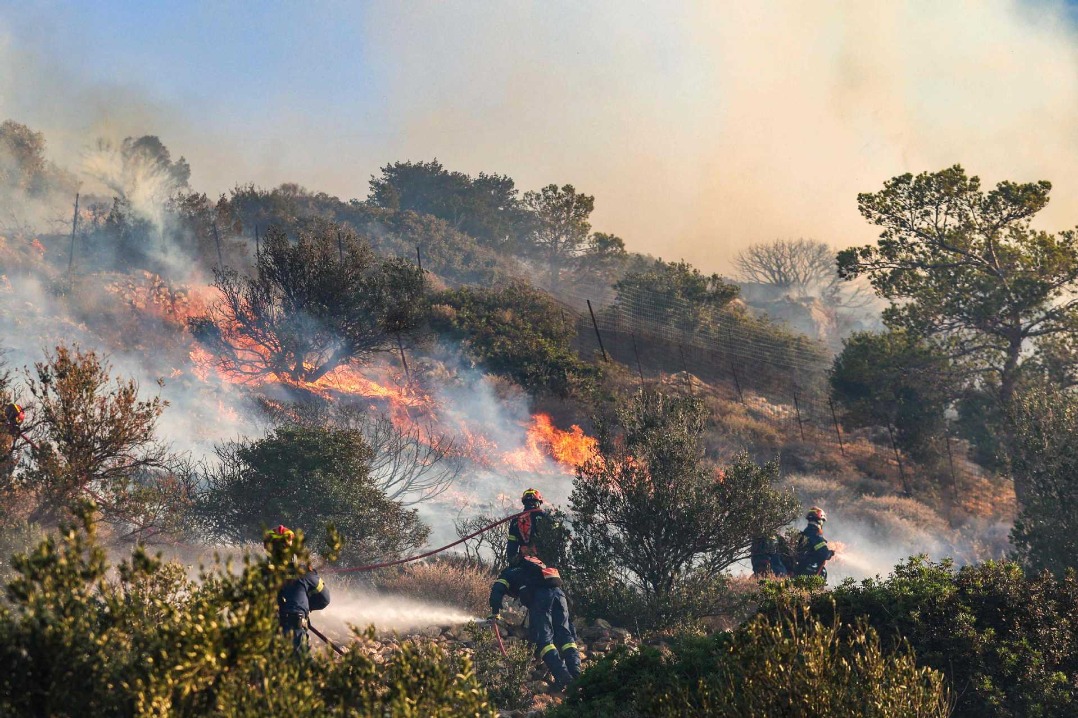Delta variant viral load still high after jabs


Major UK study adds evidence that herd immunity strategy may not be achievable
Fully vaccinated people infected with the Delta variant of the novel coronavirus can end up with viral loads as high as those seen in unvaccinated individuals, a new study in the United Kingdom has shown.
Researchers from Oxford University and the Office for National Statistics analyzed data from 3.4 million nose and throat swabs taken between December and August.
They found that, while COVID-19 vaccines still offer good protection against the Delta variant of the virus, effectiveness is reduced in comparison to the Alpha strain.
And the survey also highlighted the potential for fully vaccinated people to spread the virus.
Study authors found that Delta infections after two vaccine doses had similar peak levels of virus to those in unvaccinated people. With the Alpha variant, peak virus levels in those infected post-vaccination were much lower.
"Whilst vaccinations reduce the chance of getting COVID-19, they do not eliminate it," said Koen Pouwels, an infectious disease researcher at Oxford University. "More importantly, our data shows the potential for vaccinated individuals to still pass COVID-19 onto others, and the importance of testing and self-isolation to reduce transmission risk."
Sarah Walker, an epidemiologist at Oxford University and chief investigator on the survey, said it remains unknown how much transmission can happen from people who get COVID-19 after being vaccinated. For example, they may have high levels of virus for shorter periods of time.
"But the fact that they can have high levels of virus suggests that people who aren't yet vaccinated may not be as protected from the Delta variant as we hoped," Walker said. "This means it is essential for as many people as possible to get vaccinated-both in the UK and worldwide."
The study, which was uploaded on Oxford's Nuffield Department of Medicine server and which has not been peer reviewed, analyzed 2.6 million test results from nose and throat swabs taken from 384,000 adults between December and May, and 812,000 test results from 356,000 participants between May and August.
Another notable finding from the survey was that, while two doses of the Pfizer vaccine offers great initial effectiveness against infection, this protection declines faster when compared with two doses of the AstraZeneca vaccine.
The study adds to the mounting evidence that a public health strategy centered around herd immunity may not be achievable, since vaccinated individuals may still become infected and pass on the virus.
However, the study authors stressed that the risk of getting infected with the virus is still reduced by vaccination, and that jabs lower the chances of severe disease and hospitalization resulting from an infection.
"Overall, this study is excellent as it shows that although Delta is better at infecting vaccinated people than previous variants, the vaccines still work remarkably well," said Alexander Edwards, associate professor in biomedical technology at University of Reading, who was not involved in the research. "It does remain vital to remember that even if double-jabbed, you can still get infected and pass the virus on."


































